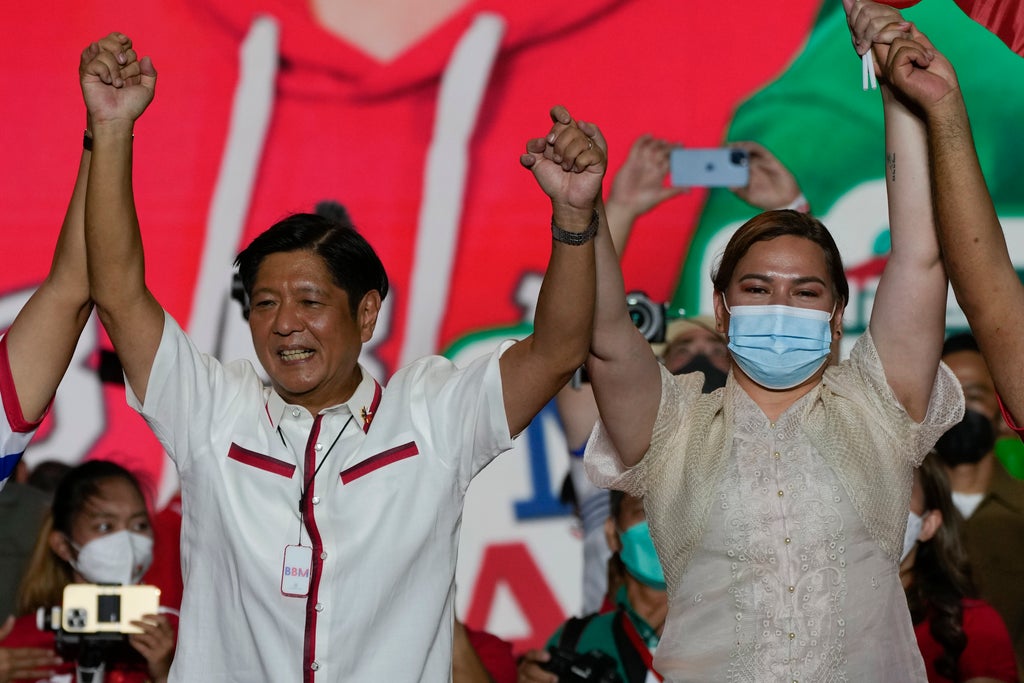
The son of the late dictator Ferdinand Marcos and the daughter of outgoing President Rodrigo Duterte are the new leaders of the Philippines, an alliance that ushers in six years of governance that has some human rights activists concerned about the course their country may take with the pair in power.
Here is a look at the new president and vice president of the Philippines, who ran in separate races for their posts.
FERDINAND MARCOS JR.
A former provincial governor, congressman and senator, the 64-year-old son who goes by his childhood nickname “Bongbong” has managed to return his family to the presidency 36 years after the “People Power” revolt ousted his father and sent him into exile for filching billions and mass human rights abuses.
His mother, Imelda Marcos, twice unsuccessfully attempted to retake the seat of power after returning with her children to the Philippines from exile in the United States, where her husband died in 1989.
Marcos Jr. has defended his father’s legacy and steadfastly refuses to apologize for or acknowledge the atrocities and plunder during the dictatorship. Married to a lawyer, with whom he has three sons, he has stayed away from controversies, including a past tax conviction and the Marcos family’s refusal to pay a huge estate tax. Throughout his campaign, he tenaciously stuck to a battle cry of national unity. He denies accusations that he financed a yearslong social media campaign that harnessed online trolls to smear opponents and whitewash the Marcos family’s checkered history, daring critics to “show me one.”
SARA DUTERTE
Sara Duterte, 43, is the outgoing mayor of Davao City, which was her father's constituency before he was elected president in 2016.
A lawyer and reserve officer in the Philippine army, Duterte has carved out her own political career and, although at times supportive of her father, is considered more levelheaded and pragmatic.
Duterte's party originally wanted her to succeed him, but she chose instead to run for vice-president.
A mother of three, she has been the longtime mayor of Davao, an economically vibrant city where the elder Duterte first carved a political name with his populist rhetoric and often bloody approach against criminality, especially the widespread trafficking and use of illegal drugs, before he rose to the presidency in 2016.







